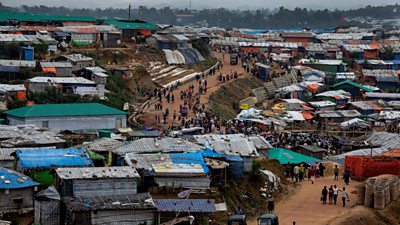Downloads
Publication date: February 2021
Authors: Nicola Bailey, Sally Gowland, Nushrat Mehjabin, Fariha Rahman and Fuad Ur Rabbi
Overview:
Since the beginning of the Rohingya refugee crisis in Bangladesh in October 2017, the ‘Common Service for Community Engagement and Accountability’ has been working to help humanitarian agencies communicate more effectively and be more accountable to communities living in and around the camps in Cox’s Bazar.
The consortium, made up of Â鶹Éç Media Action, Translators without Borders and Ground Truth Solutions, provides a range of tools and services, including audio visual content in Rohingya language, training for humanitarian practitioners and community leaders, and Rohingya language tools. It also operates a collective feedback service, ensuring community concerns are collated and brought to the attention of responding agencies through its fortnightly newsletter ‘What Matters?’
This report shares findings from the evaluation of the third phase of this project, from April 2019 to March 2020.
Aiming to contribute to the evidence base of the role a common service can have on effective engagement with communities in humanitarian responses, this evaluation generated five key impact case studies. These case studies emerged from qualitative research with humanitarian practitioners the Common Service has engaged with. The case studies were investigated in collaboration with an independent academic partner using process tracing - an evaluation methodology which examines causal claims of impact through robust hypothesis testing and evidence gathering. Evidence is drawn and triangulated from quantitative and qualitative data sources in order to test and generate understanding of the impact the Common Service can have at practitioner, organisation and community levels. As such, this report provides valuable insights into the role such platforms can play in humanitarian responses to refugee crises.
Find out more about our work supporting humanitarian organisations to improve their engagement with the Rohingya people and host communities living in Cox’s Bazar.
